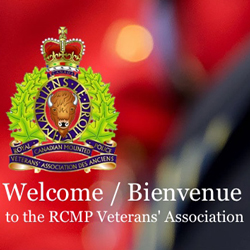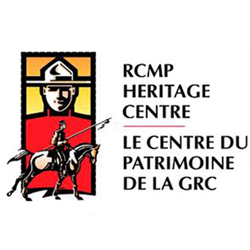The Greatest Brit Pays a Visit to Canada!
The 100 Greatest Britons was a television series broadcast by the BBC in 2002. It was based on a television poll conducted to determine who the British people at that time considered the greatest Britons in history. The series included individual programmes featuring the top ten, with viewers having further opportunity to vote after each programme. It concluded with a debate and final determination of the ranking of the top ten. Although many living people were included among the top 100, all of the top ten were deceased.
# 1 on the list of Great Britons was Winston Churchill.
Sir Winston Leonard Spencer-Churchill KG OM CH TD DL FRS RA was a British politician, army officer, and writer, who was Prime Minister of the United Kingdom from 1940 to 1945 and again from 1951 to 1955. As Prime Minister, Churchill led Britain to victory in Europe in the Second World War.
Churchill visited Canada eight times and once meeting with President Roosevelt off the coast of Newfoundland, pre-confederation, Aug. 9, 1941. British Prime MinisterWinston Churchill arrived aboard the battleship HMS Prince of Wales (three months earlier HMC Prince of Wales was involved in the hunt for and sinking of the German battleship Bismark) at Placentia Bay for a secret meeting with President Franklin D. Roosevelt (Roosevelt arrived on the USS Augusta (along with five destroyer escorts), a Northampton-class cruiser of the United States Navy. (notable for service as a headquarters ship during Operation Torch, Operation Overlord, Operation Dragoon, and for her occasional use as a presidential flagship carrying President Roosevelt) prior to America entering WWII.

Churchill first visited Canada in 1900, speaking on his exploits during the South African War. During a visit in 1929 he wrote to his wife, Clementine, from the Banff Springs Hotel: “I have made up my mind that if N. Ch. [Neville Chamberlain] is made leader of the CP [Conservative Party] or anyone else of that kind, I clear out of politics and see if I cannot make you and the kittens a little more comfortable before I die. Only one goal still attracts me, and if that were barred, I should quit the dreary field for pastures new…. Darling, I am greatly attracted to this country. Immense developments are going forward. There are fortunes to be made in many directions. The tide is flowing strongly. However, the time to take decisions is not yet.”
His visits to Canada during World War II, meeting the Canadian Parliament, and later in the war his two meeting with President Roosevelt at Quebec City are well recorded. He viewed Canada as being able to speak English and American so he used Prime Minister Mackenzie King as a conduit in reaching out to President Roosevelt.

He is greeted by Prime Minister Mackenzie King (back to the camera).
December 1941 the United States joins Canada and Great Britain in the war against Germany and Japan, and Winston S. Churchill, Great Britain’s charismatic new prime minister, travels to Washington, D.C. to meet President Franklin D. Roosevelt. His next stop is Ottawa, where on Dec. 30 he delivers an electrifying address that stirs the passions and strengthens the resolve of Canada a nation at war.
During his speech, Churchill derided the prediction of French officials, who had said, “In three weeks, England will have her neck wrung like a chicken.”
Churchill to Parliament: “I warned the French that Britain would fight on alone whatever they did, their generals told their Prime Minister and his divided cabinet, ‘In three weeks England will have her neck wrung like a chicken.’ “Some chicken!” [when the laughter and desk thumping died down in the House of Commons Churchill followed with… “Some neck!” Another great Churchill speech!

The huge crowds and the warm reception that Churchill received in the Parliament provide a good indication of how much difference he personally made to inspiring people. It is not enough read his words but to actually see and hear him speak. To view his speech:
https://www.youtube.com/watch?v=y6JxSHmVB5
Yousuf Karsh the famous, soon to become more famous, Canadian photographer was asked by the Canadian Prime Minister to be present after Churchill’s speech in order to take Churchill’s photograph. That photograph became world famous. In Karsh’s own words:
“My portrait of Winston Churchill changed my life. I knew after I had taken it that it was an important picture, but I could hardly have dreamed that it would become one of the most widely reproduced images in the history of photography. In 1941, Churchill visited first Washington and then Ottawa. The Prime Minister, Mackenzie King, invited me to be present. After the electrifying speech, I waited in the Speaker’s Chamber where, the evening before, I had set up my lights and camera. The Prime Minister, arm-in-arm with Churchill and followed by his entourage, started to lead him into the room. I switched on my floodlights; a surprised Churchill growled, ‘What’s this, what’s this?’ No one had the courage to explain. I timorously stepped forward and said, ‘Sir, I hope I will be fortunate enough to make a portrait worthy of this historic occasion.’ He glanced at me and demanded, ‘Why was I not told?’ When his entourage began to laugh, this hardly helped matters for me. Churchill lit a fresh cigar, puffed at it with a mischievous air, and then magnanimously relented. ‘You may take one.’ Churchill’s cigar was ever present. I held out an ashtray, but he would not dispose of it. I went back to my camera and made sure that everything was all right technically. I waited; he continued to chomp vigorously at his cigar. I waited. Then I stepped toward him and, without premeditation, but ever so respectfully, I said, ‘Forgive me, sir,’ and plucked the cigar out of his mouth. By the time I got back to my camera, he looked so belligerent he could have devoured me. It was at that instant that I took the photograph.”
The photograph was featured on the cover of LIFE magazine in 1945.


Below: December 1941 Churchill arrives on Parliament Hill. I wonder if the RCMP membershave their side arms on under their Pea Jackets? Considering what was going on in the world in 1940 you would think that security, even in Canada, would be at a maximum for Hitler’s arch enemy the Prime Minister of Britain.

Below: Churchill and MacKenzie King arrive in Quebec City for the Quebec Conference. Who were those members? I wonder if they had a framed picture in their “Man Caves” of this historic moment.


RCMP Members march in for inspection by an officer prior to being deployed for security/ceremonial duties at Quebec City.f


Mackenzie King, Franklin D. Roosevelt, Winston Churchill, and the Earl of Athlone, Governor General of Canada, at La Citadelle.
Mackenzie King and the G.G. were there solely for the photo op.
The First Quebec Conference (codenamed “QUADRANT”) was a highly secret military conference held during World War II between the British, Canadian, and United States governments. The conference was held in Quebec City, August 17, 1943 – August 24, 1943. It took place at the Citadelle and at the Château Frontenac. The chief representatives were Winston Churchill and Franklin D. Roosevelt, hosted by the Canadian Prime MinisterWilliam Lyon Mackenzie King. Although, Churchill suggested that Mackenzie King be involved in all discussions, Roosevelt vetoed the idea. As a result, Mackenzie King’s hospitality was almost purely for ceremonial purposes.

Conference in Quebec City in 1944. Prime Minister Mackenzie King
was the host but not a participant in the meetings.
After Churchill’s visit to Canada, December 1941, and his speech to parliament, even the “Greatest Briton” received the “Mountie” treatment. The editorial cartoon below appeared in “PUNCH” magazine in January 1942.
During World War II Canadians while holding in Britain were training for the fight to come in Europe. One of the many duties performed in England was the honour of guarding Chartwell the summer home of Churchill. On one of his infrequent wartime visits to his country home, Churchill was saluted by a soldier of the Hastings and Prince Edward Regiment and had a scintillating conversation!

“THE MOUNTIE”
“I mean to get my men”
(“The invaders and tyrants must be made to feel that their fleeting triumphs
will have a terrible reckoning.” Mr. Churchill at Ottawa)
“Why don’t you challenge me, Canada?” growled Churchill.
“I know who you are, sir.”
“Oh, how do you know me?”
“By your cigar, bald head, double chin, short neck and fat belly, sir.”
“But that could also describe a German.”
“You’re right, sir, but they would do up the bottom button on their vests.”
Ric Hall 24394/0.1330



 February 6, 2019
February 6, 2019 






